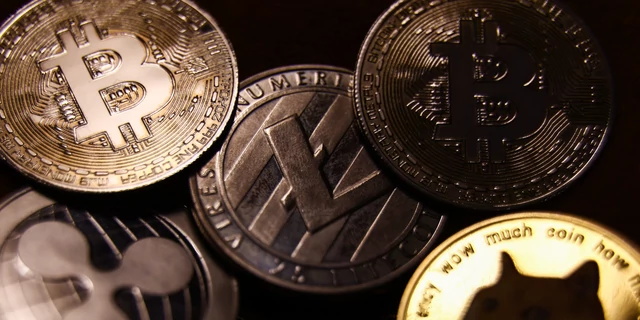
A representation of cryptocurrencies including bitcoin and dogecoin are seen in this illustration photo.Jakub Porzycki/NurPhoto via Getty Images
Two African countries have emerged as the most crypto-savvy countries in the world
• Cryptocurrencies have transcended their niche status and now captivate the world’s attention.
• Two African countries were on the list of the most crypto-savvy countries in the world
• However, the use of cryptocurrency remains a contentious issue in numerous markets across the region.
The adoption, utilization, and awareness of cryptocurrencies have transcended their niche status and now captivate the world’s attention. According to a 2023 global survey by Consensys and YouGov, an impressive 92% globally have tuned into the buzz around digital currencies.
However, the enthusiasm isn’t spread evenly across the globe. While certain regions exhibit caution, others, especially in Southeast Asia, South America, and Africa, see crypto as a beacon of financial opportunity.
The survey revealed that Nigeria and South Africa are the most crypto-savvy countries globally, with Brazil securing third position.
The survey involved 15,158 participants from 15 different countries, spanning an age range of 18 to 65 years. This multi-country study aims to provide a global and regional view of the perceptions people have around cryptocurrencies, NFTs, Web3, blockchain, and the metaverse.
For Nigeria, the figures on its crypto awareness are compelling as a remarkable 99% of respondents indicated their awareness of cryptocurrencies. Moreover, 70% of respondents clearly understood the fundamental concept of blockchain technology, elevating Nigeria’s place on the global scene.
In terms of crypto ownership, the country is at the forefront, on par with countries like the USA. This becomes even more interesting when you factor in that the Central Bank of Nigeria in February 2021, declared that cryptocurrency transactions are in direct violation of existing laws.
In addition, 65% of respondents view cryptocurrencies as a safeguard against financial decline and hyperinflation. This contrasts with Europe and Japan, where a larger portion seems hesitant about future investments in cryptocurrencies. Concerns of speculation or scams are relatively low, at 9% and 6% respectively.
Similarly, South Africa shows tremendous promise for cryptocurrencies as a staggering 98% of its population is aware of them, and the general sentiment is very positive, associating cryptocurrencies with the future of money and digital ownership.
However, the use of cryptocurrency remains a contentious issue in numerous markets across the region. It has faced resistance from political, financial, and even religious elites. Last year, six African countries completely banned the use of cryptocurrency.
Africa.businessinsider.com
